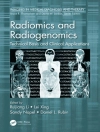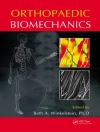With very few exceptions, eukaryotic cells possess two interdependent genomes, chromosomal and extra-chromosomal. Over the past several decades, cancer – search has focused primarily on deciphering the intricate alterations in the chro- somal genome, with until recently, very little attention to its cytoplasmic counterpart. In spite of the enormous complexity of the nuclear genome, which we now fully appreciate after completion of the human genome project, the efforts of cancer researchers are commendable in terms of the tremendous gains made in unraveling the numerous genetic changes in cancer. These changes include d- coveries of tumor suppressor genes, oncogenes, and caretaker genes that are often mutated in cancer. Recent studies of genomic pro?les are uncovering even more altered and mutated genes in cancer. Besides these ?ndings, several therapeutic targets for chemotherapy are currently made from studies of altered nuclear genetic pathways. Inspite of all these positive efforts, the war on cancer, declared in 1971 by Richard Nixon, is far from being worn. Indeed, the failure of chemotherapy is obvious to clinicians, oncologists, and their patients alike. Moreover, the global incidence and prevalence of cancer continue to rise. What are we missing? Which direction should we be taking? Of course, modern integrated nuclear genomics, proteomics, and metabolomics should provide important clues to carcinogenesis, but the contribution of cytoplasmic genetic alterations to carcinogenesis cannot be neglected.
Cuprins
General Overview of Mitochondrial Genetics and Functions.- Basic Mitochondrial Genetics, Bioenergetics, and Biogenesis.- The Warburg Phenomenon and Other Metabolic Alterations of Cancer Cells.- Mitochondrial Control of Apoptosis and Cancer.- Mitochondrial-to-Nuclear Communications in Cancer.- Mitochondrial Genetic Alterations in Cancer.- Types of Mitochondrial Genetic Alterations in Cancer.- Mitochondrial Genetic Alterations in Cancer I.- Mitochondrial Genetic Alterations in Cancer II.- Mitochondrial Genome Rearrangements and Copy Number Changes in Cancer.- Functional Importance of Mitochondrial Genetic Alterations in Cancer.- The Role of Mitochondrial Reactive Oxygen Species in Cancer.- Clinical Applications of Mitochondrial Genome Changes in Cancer.- Mitochondrial DNA Measurement in Exfoliated Cells for Cancer Detection and Monitoring: The Copy Number Advantage.- Early Cancer Detection and Monitoring Using Changes in the Mitochondrial Genome as Biosensors.- Analysis of Mitochondrial Genome Alterations in Cancer.- “Mitocans”: Agents Targeting Mitochondria to Kill Cancer Cells.
Despre autor
Gabriel D. Dakubo is the founder of Mito-Onc Consultancy, a pioneer consulting firm that provides evidence-based advice on discovery, validation and regulatory submission of cancer biomarkers based on mitochondrial genomic alterations.












